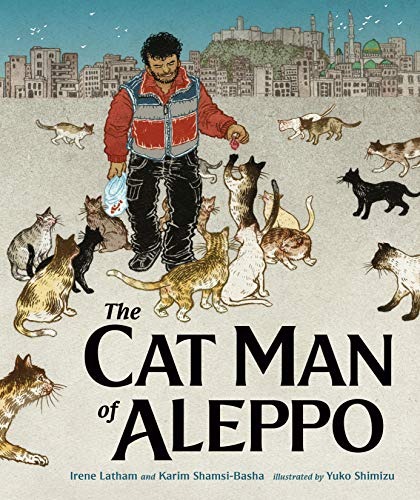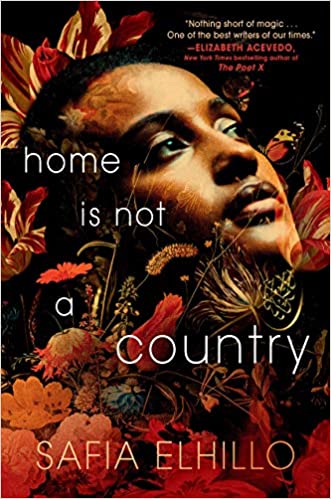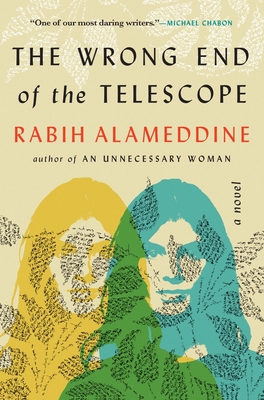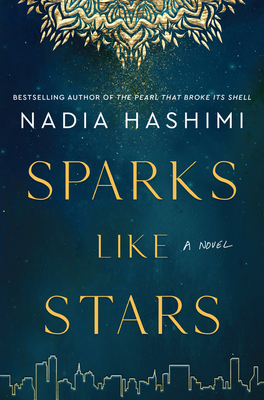Welcome to In Reading Color, a space where we focus on literature by and about people of color.
In addition to being National Poetry month, it’s also Arab American Heritage Month! *blares DJ club horn* The two taking place at the same time is fitting, especially since Arab writing is so influential, crossing over languages and through time. These Arab writers— who write for children, young adults, and adults— add to that legacy.

The Cat Man of Aleppo by Karim Shamsi-Basha and Irene Latham, illustrated by Yuko Shimizu
This is the Caldecott Honor winning true story of Mohammad Alaa Aljaleel, who decides to stay behind to help out in Aleppo, Syria when the war comes. As he starts to feel loneliness from his now empty neighborhood, he realizes the cats people had to leave behind are lonely, too. He starts to feed and love on them and soon more and more cats come. People all over the world hear about his story and help out and he’s able to get a cat shelter. Alaa gives tidbits of how life was in his town before the war in the form of notes throughout the book, painting the picture of a vibrant community before the war hit.

Home Is Not a Country by Safia Elhillo
This is a YA novel in verse about Nima, who is fourteen-years-old, Muslim, and the daughter of an immigrant. Nima is in between two worlds— her mother’s home country and her current suburban home in the U.S.— neither of which she feels she truly belongs to. Haitham is her neighbor and her only friend, but one day he’s attacked in a hate crime and the chasm between her mother and her only seem to grow bigger as she learns more about her father and things that could have been.

The Wrong End of the Telescope by Rabih Alameddine
Mina, a surgeon in her late 50s, has been booed up with her wife in Chicago for awhile now. When she gets a request from a friend to come help the non profit she’s working for, Mina flies to the refugee camp on the Greek island Lesbos. This is the closest she’s been to her home of Lebanon since she was rejected for being trans. There, she starts to bond with a Syrian woman whose cancer diagnosis she keeps hidden from her family. The story is told through Mina’s experiences treating patients and through an account she writes and directs at a Lebanese writer who convinced her to document what the refugee camp was like. Mina manages to mix a little humor in with the tragedy of displacement.

Sparks Like Stars by Nadia Hashimi
Hashimi uses beautiful writing to tell the story of how Sitara came to survive the 1978 Afghanistan coup. When she was ten, her father served as an advisor to the president. Once the presidential palace is attacked, her entire family is killed and only she survives with the help of a guard named Shair. She’s raised in America where she adopts a new name and studies hard to become a surgeon.Then, thirty years after the coup, she sees Shair again, this time as a patient, and traumatic memories resurface concerning who really killed her parents.
Don’t forget you can get three free audiobooks at Audiobooks.com with a free trial!
A Little Sumn Extra
Books like Our Flag Means Death
Here’s a guide to becoming an audiobook editor
An interesting look at how literature handles the Chinese Cultural Revolution
Indigenous poets you should get into
Help increase the library budget!
The banning of Persepolis has inspired its own graphic nonfiction book
Thanks for reading; it’s been cute! If you want to reach out and connect, email me at erica@riotnewmedia.com or tweet at me @erica_eze_. You can find me on the Hey YA podcast with the fab Tirzah Price, as well as in the In The Club newsletter.
Until next time,
-E